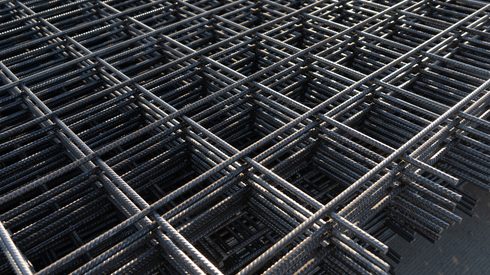A fall in UK domestic scrap demand should be mitigated by lower scrap arisings from the slump in car manufacturing, the sources added.
Demand in India for steel scrap had been strong in the first half of this year, along with buying interest for aluminium scrap, but it has been dropping steadily since July.
At present, Indian scrap processors were sourcing most of their material from cheaper domestic supplies, with a return to the European markets not expected this year, UK sources said.
“Typically, India is a big buyer of steel scrap from the UK,” one sizeable UK scrap processor said, “but that has virtually stopped through this quarter. Indian buyers are not interested in British scrap for the moment.”
Indian demand for scrap from Europe is variable
UK scrap sources said that Indian demand for scrap from Europe generally “blows hot and cold,” and that a strong run would see India surpass the level typically shipped to Egypt, which is usually the second-biggest buyer of UK and European mainland scrap behind the world’s principal scrap importer, Turkey.
But the level of UK export trade into India can shrink to negligible volumes when Indian scrap importers withdraw from the international markets, UK sources said.
British steel scrap prices to domestic consumers fell by £5.00 ($6.69) per tonne for deliveries in September, extending a downward trend for a second month and reflecting weaker domestic and export demand.
Fastmarkets’ latest weekly price assessment for steel scrap, shredded, export, fob main port UK, was $364-366 per tonne on September 20. This compared with $374-375 per tonne on August 9, at the time when the UK monthly price assessments were last made.
Across the European mainland, domestic monthly prices have also been cut in Germany, France and Spain, market sources said. In Spain, they added, monthly steel scrap prices dropped by around €35 ($39) per tonne, and by about €25 per tonne in Germany and France.
UK steel scrap export sales usually consume at least 80% of the country’s 10 million tonnes per year of scrap. The country exported 3.08 million tonnes in the first five months of 2024, according to data from the container shipment industry. The annual volume of steel scrap exported from the UK was 7.22 million tonnes in 2023, 8.24 million tonnes in 2022 and 7.44 million tonnes in 2021, the data showed.
“It seems there are three reasons for the fall in Indian demand,” another major UK-based scrap processor said. “[These are] weaker domestic steel buying interest, a consequent difficulty in getting lines of credit for Indian scrap traders, and the availability of container freight due to trouble in ports with containers out of position.”
Tighter availability of containers has also led to a jump in freight costs, UK trade sources said. And scrap importers in Pakistan have had the same trouble as in India with credit finance, they added.
In the UK, the fall in exports to the Indian subcontinent has not increased availability significantly because exporters have found other markets, such as Turkey, which has been buying more scrap this month.
UK scrap sources also said that a 10% decline in British car manufacturing since July, notably in electric car production, has led to a 30% drop in scrap arisings from that sector, which has helped to sustain the overall balance in supply and demand.
India downtrend
Indian domestic steel demand started falling at the end of the second quarter of 2024 and has been depressed since then. As a result, many steel mills have stockpiled their scrap, while the number of readily available cargoes has increased.
“The sluggishness in local steel demand made Indian buyers cautious. They began curtailing steel production and procuring cheaper materials,” a trading source said.
“Comparatively,” he added, “US shredded [scrap] is cheaper than UK shredded because of better offtake of the latter, due to comparatively higher dock prices. The prices of US shredded scrap differ significantly from those of UK shredded scrap, being at least $5-7 per tonne cheaper.”
Steel scrap import volumes from the UK into India plunged by 31% to 628,600 tonnes over January-July 2024, compared with 911,900 tonnes in the corresponding period last year, according to Indian commerce ministry data.
The January-July drop in imports followed a whopping 70% year on year increase in the full year of 2023, when India imported 1.74 million tonnes of scrap from the UK.
Fastmarkets calculated its twice-weekly steel scrap shredded index, import, cfr Nhava Sheva, India, at $388.15 per tonne on Tuesday, up by $4.41 per tonne from $383.74 per tonne on September 20, and up week on week by $1.86 per tonne from $386.29 per tonne on September 17.






